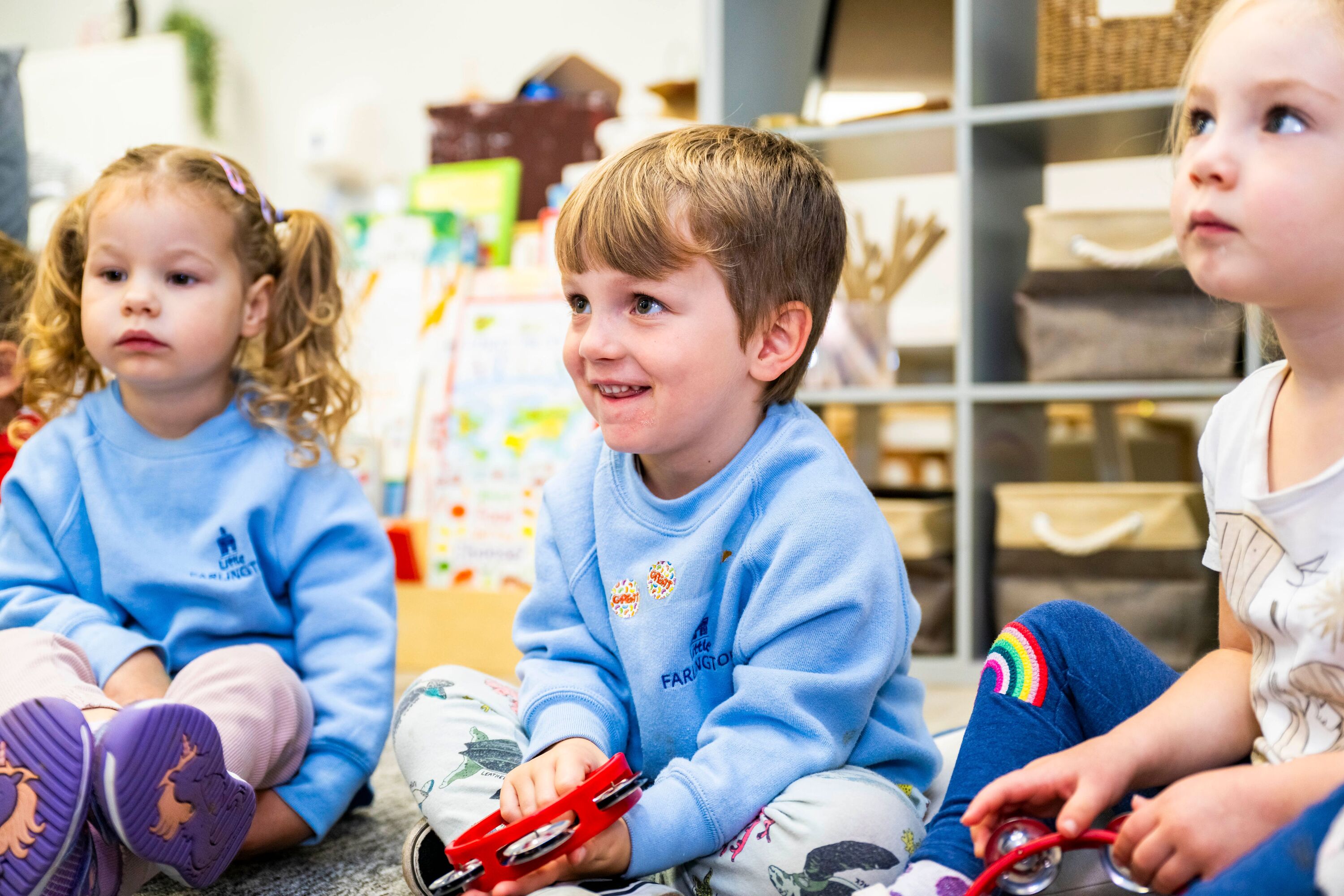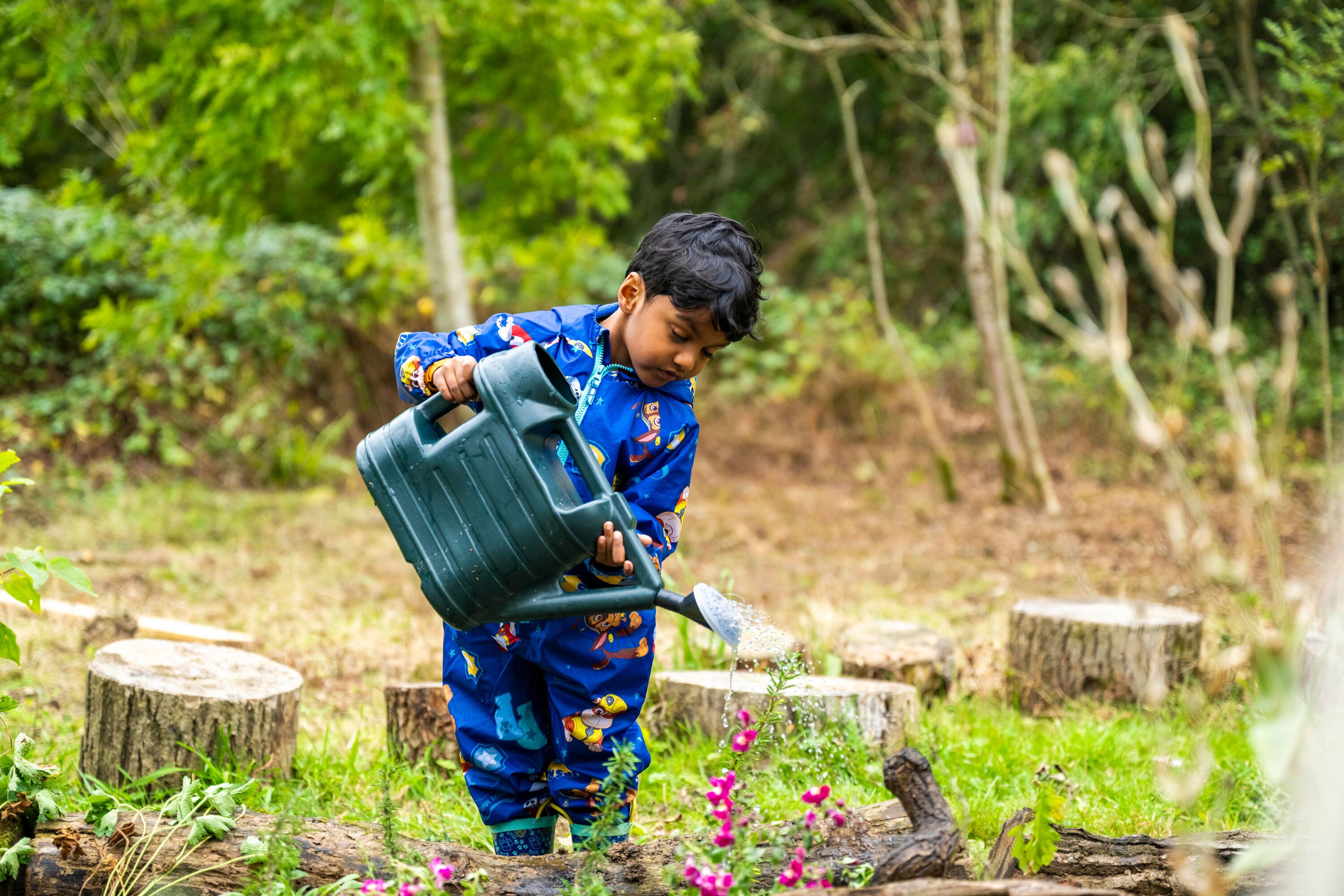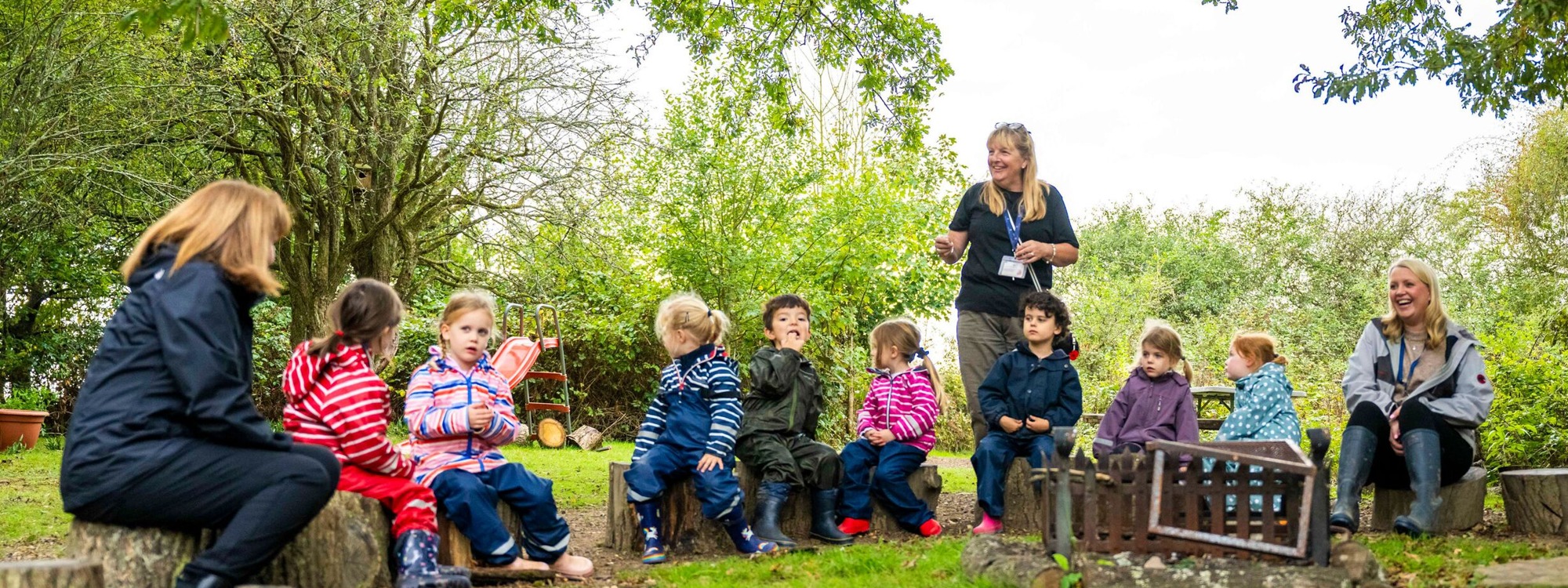OUR PHILOSOPHY AND STAGES OF LEARNING
Discovering ‘what is possible’ takes imagination, creativity and resilience. Our nursery and pre-reception children are encouraged to embrace possibility and be ambitious at all stages of their development.
We take into account the most up-to-date early years thinking and combine that with well-established philosophies, placing the child at the centre of their learning and ensuring that parents are true partners in their child’s education and development.

Our enquiry-based learning approach means we follow a curriculum that emerges from allowing children’s interests and ideas to create direction for co-constructed learning. We incorporate the Early Years Foundation Stage (curriculum for 0 to 5 years) into our work with the children, ensuring their learning covers all areas of development, from physical development and personal and social skills, to early mathematics and literacy.
We ensure that we spend as much time as we can working with the children at Little Farlington, observing them in play and learning, sharing their progress, and using our expertise to ensure they have meaningful interactions to deepen their curiosity and understanding. This will enable us to gain consistent insight into where they are in their development and where to go next, through our extensive knowledge of them as individuals.
The educational principles at Little Farlington complement the provision embedded at Farlington School, embracing the same values of challenge, ownership, dialogue and engagement for each of our children.
Specialist Teachers
One of the major benefits of attending Little Farlington is the access during the school term time to our specialist teaching; our preschool learners will enjoy music, art, dance and early modern foreign language lessons whilst the main school is in session. This is in addition to an exciting early years curriculum, including preparations for phonics and numeracy development with our qualified and experienced staff.
Outdoor Learning
We strongly believe that outdoor learning plays an integral part in delivering a holistic learning experience, and our nursery children will benefit from Farlington's extensive grounds, which comprise 33 acres of Sussex countryside and open space. We emphasise the importance of Forest School and encourage the children to learn about the environment, allowing our youngest learners to develop their own capabilities both in and beyond the classroom, supported at all times by the excellent pastoral care for which Farlington is known.

Stages of Learning
Our Four Development Stages
Our nursery and pre-reception is divided into four different stages, allowing children to thrive in small groups and receive individual attention to enable the best development and progression for their age.
|
|
|
|
|
|
Discoverers: |
Explorers: |
Adventurers: |
Pioneers: |
|
6 months to 1 year |
1 to 2 years |
2 to 3 years |
3 to 4 years |
Characteristics of Effective Teaching & Learning
Playing & Exploring – Engagement
• Finding out and exploring
• Playing with what they know
• Being willing to ‘have a go’
Active Learning – Motivation
• Being involved and concentrating
• Keep trying
• Enjoying achieving what they set out to do
Creating & Thinking Critically – Thinking
• Having their own ideas
• Making links
• Choosing ways to do things
Learning how to use everyday objects is an important development, such as using a spoon, drinking from a cup, producing sounds from a musical instrument. These are all encouraged through a mixture of individually planned activities and daily routines. This development continues from our Discoverers (baby stage) through to our Explorers (toddler stage).
Discoverers (baby stage)
Here, we focus on the Prime Areas of the EYFS curriculum - Personal, Social and Emotional Development; Physical Development; and Communication and Language. These form the basis for successful learning in the four Specific Areas later on in learning. Sensory play and experiences at Little Farlington will support brain development, enhance memory, and increase the ability to respond to age-appropriate tasks and problem solving through discovery.
Explorers & Adventurers (toddler stages)
We enable the children at Little Farlington to really explore and realise their ideas by setting up our environment to allow for open-ended learning opportunities guided by the children's interests.
Literacy and mathematics; opportunities are incorporated into our adventures, our play and our shared learning experiences, to ensure the children develop an awareness of numbers, patterns, words, rhyme and stories from an early age.
In addition to our daily free-flow outdoor learning, age-appropriate Forest School and exploration of the school grounds form an integral part of our philosophy.
Pioneers (Pre-Reception stage)
In addition to continued development and learning through the children's interests and outdoor experiences, daily literacy and maths sessions help them to gain knowledge, skills and understanding of the Specific Areas of the EYFS curriculum: literacy; maths; understanding the world; and expressive arts and design.
The children in our pre-reception stage start their specialist subjects, allowing them to broaden their knowledge of music, dance, art and language. Developing musicality and a love of rhythm and rhyme increases sensory development, coordination, vocabulary and creative approaches to learning, as well as being a medium for building relationships.
Similarly, the benefits of exploring artistic expression, and the development of imagination and practical skills, positively impact and engender the idea of pioneering, and both individual and collective discovery. Meanwhile, introducing the children to early languages enables them to broaden their language acquisition skills and explore how they think about different sounds.
Whilst at Little Farlington, our Pioneers will also develop physical skills such as balancing and basic throwing and catching, which are important for further developing fine motor skills, as well as hand-eye coordination.














